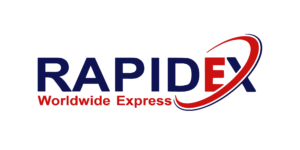As we move further into 2025, companies are racing to optimize their tech stacks, aiming for better efficiency, personalization, and real-time insights. One of the most underrated yet powerful combinations driving digital transformation today is Sitecore ERP integration. While Sitecore is well known for its advanced content management and digital experience platform, integrating it with ERP systems unlocks a whole new level of operational and customer experience excellence.
In this guuide, we’ll dive deep into what Sitecore ERP integration means, why it matters in modern IT environments, and how it pairs seamlessly with IT-managed services to offer long-term digital gains. If your organization uses Sitecore and is looking to get more out of your data and business systems, this could be the edge you’ve been missing.
What is Sitecore ERP Integration?
Sitecore ERP integration is the process of connecting Sitecore’s powerful digital experience platform with an enterprise resource planning (ERP) system like SAP, Oracle, Microsoft Dynamics, or NetSuite. The goal is to streamline data flow between your back-office operations (inventory, customer data, billing, etc.) and your front-end digital channels (websites, mobile apps, marketing campaigns).
In simpler terms, it brings your marketing and operations teams onto the same page, allowing your brand to offer highly personalized customer experiences driven by real-time data. For example, imagine a customer visiting your website and seeing product recommendations based on their order history stored in your ERP—that’s the magic of integration.
Why Sitecore ERP Integration Matters in 2025
1. Unified Customer View
Today’s users expect brands to know who they are across every touchpoint. With Sitecore ERP integration, you can create a 360-degree customer view by syncing ERP data like purchase history, preferences, and account status with Sitecore’s personalization engine. This leads to better targeting, tailored content, and ultimately higher conversions.
2. Operational Efficiency
Without integration, teams often rely on manual data entry or isolated systems that lead to inefficiencies, delays, and errors. By connecting Sitecore and ERP platforms, companies automate workflows such as order updates, customer service alerts, and inventory changes—cutting down operational friction significantly.
3. Real-Time Data Sync
In 2025, real-time responsiveness is not a luxury—it’s a competitive necessity. Sitecore ERP integration ensures that your customer-facing platforms always reflect the latest product availability, pricing, and order status from your ERP. This reduces customer complaints and boosts trust in your brand.
4. Personalization at Scale
Sitecore is one of the top platforms for content personalization. But without integrated ERP data, personalization is limited. When your ERP feeds Sitecore with data like recent transactions or customer type, you can craft experiences that feel hyper-relevant to every individual user.
Real-World Use Case: Sitecore ERP Integration in Retail
A leading fashion retail brand using Microsoft Dynamics ERP and Sitecore DXP struggled with disconnected customer data. Marketing teams were unable to access purchase histories, leading to poorly targeted campaigns and low engagement. After integrating Sitecore with their ERP system, the brand automated product recommendations, triggered personalized emails based on stock levels, and displayed dynamic pricing on their website.
Result: A 30% increase in customer engagement and a 20% reduction in cart abandonment rates—all within six months of implementation.
The Role of IT Managed Services in Enabling Integration
While the benefits of Sitecore ERP integration are clear, the process can be technically complex. That’s where IT managed services step in. Managed service providers (MSPs) offer end-to-end support, from system integration and API management to monitoring and maintenance.
Here’s how IT managed services enhance the integration process:
1. Seamless Data Connectivity
MSPs ensure reliable, secure data exchange between Sitecore and ERP systems, using middleware, APIs, or enterprise service buses (ESBs). This avoids common pitfalls like data mismatches or broken syncs.
2. Scalable Infrastructure Management
Integration often involves backend system configuration and cloud optimization. MSPs can scale your infrastructure on-demand and manage resources efficiently—crucial for high-traffic websites or data-heavy operations.
3. Continuous Monitoring and Support
Once integration is live, MSPs offer 24/7 support, real-time performance tracking, and issue resolution to ensure your systems stay connected and secure at all times.
4. Security and Compliance
Given the sensitive nature of ERP data (billing, customer records, financials), MSPs also help ensure that your integration complies with industry regulations and data protection standards.
Key ERP Platforms Commonly Integrated with Sitecore
When it comes to Sitecore ERP integration, not all platforms are the same. Here are the most common ERP systems integrated with Sitecore in enterprise environments:
-
SAP ERP: Popular in manufacturing, logistics, and enterprise-level firms
-
Microsoft Dynamics 365: Ideal for mid-sized to large organizations with a Microsoft ecosystem
-
Oracle ERP Cloud: Used by large enterprises for its scalability and finance features
-
NetSuite: A favorite among fast-growing startups and eCommerce brands
Each of these ERPs brings unique capabilities, and the integration process varies depending on your existing IT architecture and business goals.
Challenges and How to Overcome Them
1. Complex Architecture
Integrating Sitecore with a legacy ERP system can involve complex architecture. Solution: Use microservices and middleware to minimize disruption and enable modular connections.
2. Data Silos
Many organizations have data stored in separate formats or inaccessible systems. Solution: Conduct a data audit before integration and standardize formats for compatibility.
3. Security Risks
Sharing data between platforms can increase vulnerability. Solution: Partner with IT managed services providers to implement encryption, secure APIs, and compliance frameworks.
Best Practices for Successful Integration
-
Start with a roadmap: Define your business goals, user journeys, and data points needed across Sitecore and ERP.
-
Choose the right partner: Whether it’s a Sitecore-certified consultant or an MSP with ERP expertise, make sure your team understands both platforms deeply.
-
Test thoroughly: Use sandbox environments to simulate data flows before going live.
-
Monitor KPIs: Track metrics like data sync times, personalization impact, and operational efficiency post-integration.
What to Expect in the Future
The demand for Sitecore ERP integration will only grow in 2025 and beyond. As AI, predictive analytics, and real-time customer engagement become central to digital success, having integrated systems will be essential. Businesses that adopt early and invest in the right support through IT managed services will have a clear edge over competitors still stuck in disconnected workflows.
Final Thoughts
In a world where digital agility defines market leaders, the synergy between Sitecore and ERP systems is too powerful to ignore. With Sitecore ERP integration, your business can go beyond basic personalization and deliver unified, intelligent experiences across every touchpoint. And when backed by expert IT managed services, this integration becomes a strategic asset—not just a technical upgrade.
So, whether you’re aiming to streamline operations, improve customer experience, or make smarter business decisions, Sitecore ERP integration should be on your 2025 roadmap.
- The Overlooked Power of Sitecore ERP Integration In 2025 Tech Stacks
- Unlock digital success in 2025 with Sitecore ERP integration and IT managed services—streamline operations and boost customer experiences today.
- quality engineering consulting services, IT Managed Services, Sitecore ERP integration, cloud design services, cloud native transformation services
Related posts:
No related posts.



